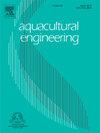Energy optimization in large-scale recirculating aquaculture systems: Implementation and performance analysis of a hybrid deep learning approach
IF 4.3
2区 农林科学
Q2 AGRICULTURAL ENGINEERING
引用次数: 0
Abstract
Recirculating Aquaculture Systems (RAS) represent an increasingly important solution for sustainable fish production, yet their high energy consumption remains a significant operational challenge. This study extends our previous work on using Deep Deterministic Policy Gradient (DDPG) for optimizing feeding rates in Recirculating Aquaculture Systems (RAS) by developing a hybrid Long Short-Term Memory (LSTM)-DDPG approach for energy optimization in a large-scale commercial RAS facility. The system, comprising 108 tanks with a total water volume of 3132 m³ , was monitored over a complete annual cycle, collecting 8760 hourly observations of environmental, biological, and operational parameters. The hybrid model achieved high predictive accuracy for energy consumption patterns, with R² values exceeding 0.91 for key components. Implementation resulted in a 15–20 % reduction in daily energy consumption while maintaining optimal water quality. Economic analysis revealed a 17 % decrease in energy costs per kilogram of fish production. The system's performance was validated under varying fish biomass densities (80–120 kg/m³) and seasonal temperature profiles. These findings demonstrate the effectiveness of integrating deep learning techniques for energy optimization in RAS, offering a scalable solution for enhancing the economic and environmental sustainability of intensive aquaculture operations.
大型循环水养殖系统的能量优化:混合深度学习方法的实现和性能分析
循环水养殖系统(RAS)是可持续鱼类生产日益重要的解决方案,但其高能耗仍然是一个重大的运营挑战。本研究扩展了我们之前使用深度确定性策略梯度(DDPG)优化循环水养殖系统(RAS)取食率的工作,开发了一种长短期记忆(LSTM)-DDPG混合方法,用于大规模商业RAS设施的能量优化。该系统由108个水箱组成,总水量为3132 m³ ,在一个完整的年周期内进行监测,每小时收集8760次环境、生物和操作参数的观测数据。混合模型对能耗模式的预测精度较高,关键部件的R²值超过0.91。实施后,在保持最佳水质的同时,每日能源消耗减少了15 - 20% %。经济分析显示,每公斤鱼产量的能源成本降低了17. %。在不同的鱼类生物量密度(80-120 kg/m³)和季节温度剖面下验证了该系统的性能。这些发现证明了在RAS中整合深度学习技术进行能源优化的有效性,为提高集约化水产养殖业务的经济和环境可持续性提供了可扩展的解决方案。
本文章由计算机程序翻译,如有差异,请以英文原文为准。
求助全文
约1分钟内获得全文
求助全文
来源期刊

Aquacultural Engineering
农林科学-农业工程
CiteScore
8.60
自引率
10.00%
发文量
63
审稿时长
>24 weeks
期刊介绍:
Aquacultural Engineering is concerned with the design and development of effective aquacultural systems for marine and freshwater facilities. The journal aims to apply the knowledge gained from basic research which potentially can be translated into commercial operations.
Problems of scale-up and application of research data involve many parameters, both physical and biological, making it difficult to anticipate the interaction between the unit processes and the cultured animals. Aquacultural Engineering aims to develop this bioengineering interface for aquaculture and welcomes contributions in the following areas:
– Engineering and design of aquaculture facilities
– Engineering-based research studies
– Construction experience and techniques
– In-service experience, commissioning, operation
– Materials selection and their uses
– Quantification of biological data and constraints
 求助内容:
求助内容: 应助结果提醒方式:
应助结果提醒方式:


